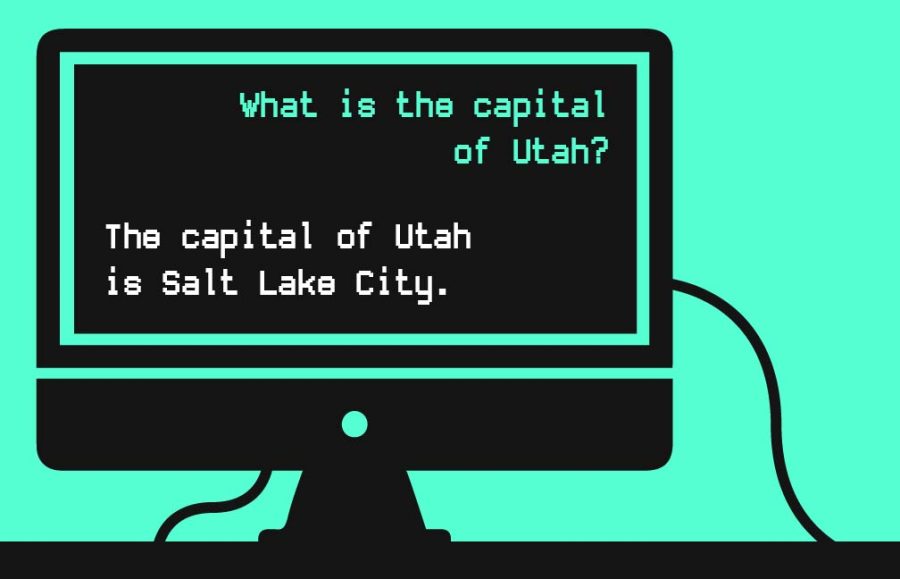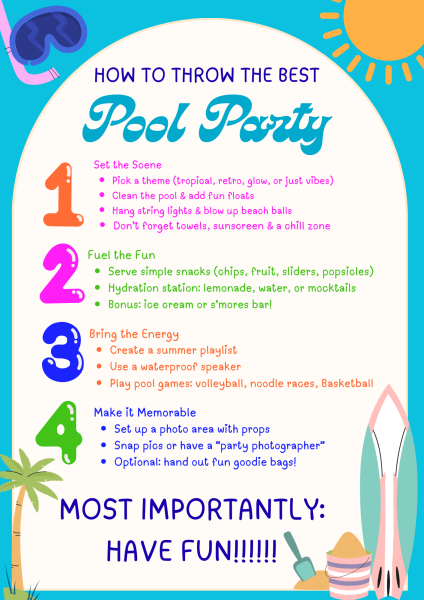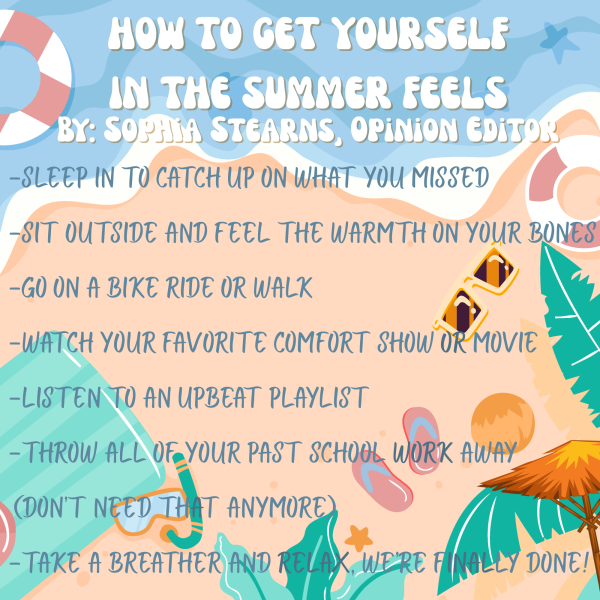Using ChatGPT the right way
The importance of responsible engagement with AI
Many of you may already have experience with artificial intelligence (AI) programs like ChatGPT. With just a simple prompt, ChatGPT can generate a scholarly essay in seconds. Other websites can be used alongside ChatGPT in order to evade plagiarism detection systems. AI programs are now a major part of our world, whether we like it or not. We are past the point of no return. From here on out, AI will only grow more powerful. However, it probably won’t look anything like the robots in “The Terminator” or “Ex Machina.” Instead, AI will revolutionize the way we process information and interact with our surroundings.
When adults tell stories, they often draw distinctions between the pre-internet and post-internet periods of their lives. In a similar vein, the young people of today may differentiate between the times in our lives before and after the explosion of AI systems. We are at a tipping point—we as students can either control AI for our own growth or we can allow AI to hinder our natural progression. AI will become more integrated into our education system and it is up to students to understand how to best engage with it.
The primary rhetoric in the media when it comes to AI in education is that it has been exclusively used by students with malintent. While academic dishonesty is certainly on the rise, the extensive benefits often get swept under the rug. Earlier this year in math class, the teacher presented us with a very difficult problem about the intersection point of two particles moving along a curve at different speeds. He challenged us to find the solution over the weekend if we had spare time. At first, I tried multiple approaches that all seemed to fall short. Once I ran out of ideas, I plugged in the problem to ChatGPT. As some of you may have learned the hard way, ChatGPT is not the best at solving math problems. It sometimes makes blatant calculation errors or needlessly overcomplicates problems. I tried to nudge ChatGPT in the right direction by pointing out its mistakes. Even though it got no closer to finding the answer, it inspired me with many more fresh approaches to the problem. After working through it on my own for a couple more minutes, I finally calculated the solution. Ultimately, AI is at its best when it feels like the student is having a conversation with it. Using AI programs to bounce ideas off of or receive feedback is far superior for the authentic learning of us as students compared to copy and pasting text generated by ChatGPT. If you take advantage of AI in the same way I did for that math problem, it will aid your learning rather than prevent it.
If I asked you to picture how AI will change the world, I’m guessing you would imagine autonomous vehicles and robot chefs. One area that may not come to mind initially is the learning industry. It is projected that in the next three years, over 47% of learning management tools will be powered by AI (Verma). With AI at their side, students and teachers will be able to personalize educational plans to accommodate individual differences in learning styles. AI assistance will make the learning experience more efficient and effective for everyone involved. There are already profound applications of AI learning in place today. An AI-powered service called Edwin has allowed more than 800,000 international students to improve their English by conversing with a bot that mimics human speech (Verma). Compared to human tutors, AI programs are cheaper, more available, and better equipped to give precise feedback. Students who fail to incorporate AI into their learning will be doomed to lag behind their peers. Embedded below is a video of Sal Khan, the founder and CEO of Khan Academy, explaining how AI could lead to the most positive transformation in education that the world has ever seen (Khan).
Not only will AI serve as a viable replacement to human educators, but it might just be a step above. The most visible advantages of AI programs in education are their efficiency and availability. However, AI will also introduce perspectives that humans are simply unable to capture. AI programs, drawing data from diverse sources, are less prone to bias than human educators. In a split second, a chatbot like ChatGPT can cover a difficult or controversial topic and present multiple sides objectively. If used appropriately, students can explore a subject matter in greater depth and nuance with AI than they would be able to do otherwise. Insights provided by AI will train us to diversify our thought process and think more critically. Soon, AI will become a staple of the classroom. It is far too important to ignore; we can either adapt to the new world or fall behind. If we carefully make use of AI in our own education, we will be more prepared to deal with a future dominated by AI systems.
When used responsibly, AI is a major positive force for the authentic learning of students. Unfortunately, many students, including those in our own community, have exploited AI programs like ChatGPT. Experts have estimated that half of college students are already using ChatGPT to cheat in their academics (Waugh). In my own classes, I have watched many students around me turn in assignments that they didn’t really complete. The temptation is obvious; students would rather be doing anything else than what they consider busywork. With ChatGPT, an assignment could be completed in a minute instead of an hour. While the students will probably get away with their dishonesty in the short term, there are more severe long term consequences. The act of cheating is counterproductive to the learning of those students.
There is certainly an argument to be made that certain schoolwork may appear arbitrary, so skipping out on them will therefore not be such a detriment to students. In truth, though, those tedious assignments help develop crucial skills such as contextualization, research, or critical thinking. We will soon enter an environment in which knowledge is useless, but skills mean everything. Once AI takes over all the menial jobs, humans will be forced into roles that are more cognitively demanding, not less. Our ability to distinguish ourselves from AI will be essential. However, that will not happen if people do not exercise their thinking skills. I am reminded of a fitting adage from Oscar Wilde: “A man who does not think for himself does not think at all.” When students plug in their coursework to an AI program, they are not thinking independently. Learning is only achieved through diligent thinking. The students who cheat with AI now will be unable to transition into careers that require uniquely human skills. In those cases, programs like ChatGPT will prevent students from realizing their potential.
We have found ourselves at an unprecedented moment in human history. There is a fork in the road for our path moving forward: we can take advantage of AI in order to grow as people or we can fall victim to AI and regress. The decision we make in the here and now will have lasting repercussions for future generations. Which path will you choose? In order to head toward the path that leads to our growth, we need to treat AI as just one tool from a large toolbox. If you are reading this article, chances are that you are currently on a computer. As soon as you finish, click over to another tab and create an account on ChatGPT. Experiment around. If you are curious about a topic, ask ChatGPT for some information on that subject. Programs like ChatGPT are the future, and we need to keep up with the times. One thing you must never do, though, is become reliant on AI. If we, as students, collectively engage with AI responsibly and honestly, we can contribute to a more promising future.
Works Cited
Khan, Sal. “How AI Could Save (Not Destroy) Education | Sal Khan | TED.” YouTube, 1 May 2023, www.youtube.com/watch?v=hJP5GqnTrNo.
Verma, Nikita. “How Effective Is AI in Education? 10 Case Studies and Examples.” Axon Park, 8 Feb. 2023, axonpark.com/how-effective-is-ai-in-education-10-case-studies-and-examples/#:~:text=AI%20Improved%20Students’%20Grades%20by,unit%20of%20multiplication%20and%20division.
Waugh, Rob. “EXCLUSIVE: ‘Half of School and College Students Are Already Using ChatGPT to Cheat’: Experts Warn AI Tech Should Strike Fear in All Academics.” Daily Mail Online, 26 Mar. 2023, www.dailymail.co.uk/sciencetech/article-11899475/Half-students-using-ChatGPT-cheat-rise-90.html.

Hi, my name is Ben Saperstein and I am an Editor in Chief for The Hawkeye. I am in my senior year and this is my 3rd year on staff. Outside of the The...









